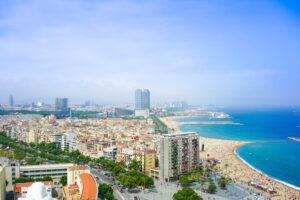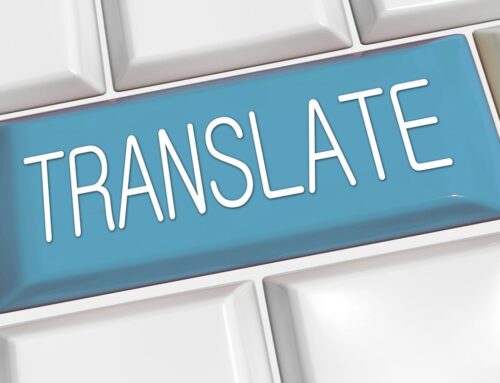 The Purchasing Process
The Purchasing Process
1. Choosing a Property and Preparing to Buy
Although the property itself is important, finding the perfect location is crucial, which is why it is essential to spend some time getting to know the area, or even multiple areas, before deciding to buy. After making sure you have chosen the right area for you, it is best to look at several different properties in a range of styles to get a feel for what you can expect to get for your money. In some cases, it is advisable to carry out checks to the land or the developer company before making that final decision.
Getting the Right Assistance
It is always advised to hire a Spain-based lawyer. This can speed up the process considerably as hiring a lawyer from your home country could result in increased legal fees and delays to the completion process.
Occasionally, Real Estate Companies are able to get you connected with a lawyer, but this isn’t recommended, as such lawyers are often either working for both buyer and seller, which is conflicting in nature and unlikely that one side is not favoured, or they may even be working with the sales agent themselves, even offering discounted legal fees. Therefore, these lawyers are not likely to be putting your interests first. At Heniam, our independent lawyers will put your interests first and make sure every step of the buying process is transparent and fair to you and your interests, giving you peace of mind.
2. The Legal Process
Step 1: The Purchase and Preliminary Negotiations
It is at this stage that a lawyer should be engaged to start the purchase process. It is your lawyer who will carry out any necessary checks on the purchase deal in place and address any problems that may arise early on.
The next step is bargaining, which includes not only the price, but a wide range of other issues which need to be agreed with the seller, such as completion dates, methods of payment, fixtures, fittings and furniture or who will be responsible for the taxes involved in the sale of a property. It is at this stage where you are most likely to discover any points to which you may not agree and will want the assistance of your lawyer to change and negotiate such points.
Step 2: The Reservation Contract and Deposit
The next step is to formalise the purchasing terms and conditions agreed with the seller through a written contract, also known as the Reservation Contract (or Contrato de Reserva in Spanish), which normally includes payment terms, estimated dates for exchange of contracts and completion dates. This needs to be signed by both the buyer and the seller (or their relevant legal representative).
In Spain, the buyer normally provides a Reservation Deposit (Señal de Reserva) with the Reservation Contract as a sign of a genuine intention to complete the purchase. This deposit, usually between 3,000 and 12,000 euros, means that the property is then taken off the market and the price is frozen for a set amount of time, normally around 30 days.
However, as a buyer you should be aware that this deposit is normally non-refundable and if you do not buy the property within the time period established in the Reservation Contract, the seller is not obliged to return your money. If it is the other way around and the seller is the one to back out of the contract, they are required to return the deposit to you.
Heniam strongly advises having sufficient funds readily available when you travel to Spain with the intention of buying a property as a delay in paying the Reservation Deposit could mean losing your dream home. Another important point is that it is recommendable to pay by cash or credit card rather than by cheque, as it can take up to ten days to go through, meaning that, during this time, the seller is free to accept other offers from buyers who can pay immediately in cash.
Step 3: Exchange of Contracts
A Private Purchase Contract (Contrato Privado de Compraventa) is a legally binding agreement between both parties and includes the terms and conditions of the sale, as well as a completion date. This contract is similar to those in the UK and is normally signed within four weeks of the Reservation Contract.
It is important to note that some terms might not be mentioned explicitly in the Private Purchase Contract as they are already implied by the Spanish laws governing these kinds of transactions.
The lawyer’s role during this step will be to complete any necessary legal searches and acquire a certificate from the Property Registry (known in Spanish as a nota simple from the Registro de la Propiedad), which includes details about the owner of the property and any mortgages or encumbrances.
If the property in question has any outstanding debts linked to it, your lawyer will need to establish a formally agreed-upon payment schedule to ensure that these debts are cancelled before completion and in order to protect your best interests as a buyer. If the seller breaks this agreement, the buyer can withdraw from the sale and claim for any damages or deduct the cost of the debt from the price of the property, as well as any related expenses.
Finally, at this stage in the purchasing process, the buyer typically pays a percentage of the purchase price, ranging between 10 per cent (if it’s a resale) and 15 to 20 per cent (if you are purchasing off-plan).
Step 4: The Completion
Formal completion is reached once the Sales Contract (Escritura de Compraventa) is signed by both parties with a Public Notary present; a public official who checks that the contract is legal, and all the necessary formalities have been carried out. This step means that possession of the property is formally passed to the buyer, and it is at this stage when the agreed sum of money is then paid to the seller.
A standard Sales Contract states that the property is free from all charges, that there are no outstanding debts attached to the property and that the seller is handing over a vacant property clear of encumbrances, unless otherwise determined and agreed.
If you aren’t in Spain at the time of the final appointment with the Public Notary, it is possible for your lawyer to attend and sign on your behalf. This is done through the granting a Power of Attorney (Poder) to your lawyer (or someone else that you trust). The document to grant a Power of Attorney can be created in Spain or in your home country.
Step 5: Registration of the Title Deeds
Although not mandatory this is an important step to secure your title and protect your interests in the property. Once the Sales Contract is signed, the Notary will send it to the corresponding Property Registry, thus beginning the process of formally registering the new title deeds in your favour.
The length of this step varies according to each Property Registry, usually between one and three months, during this time you can request a copy of the records (copia simple) in the interim. Once the registration is complete, the deeds (escritura) will be collected by you lawyer on your behalf.
Your lawyer can oversee this process as well as arranging payment of the various taxes included in the purchasing process.
Considerations when buying off-plan
Buying off-plan means that you are purchasing a property that has not yet been built, and this can lead to complications. It is therefore highly recommended to tread with caution in this type of transaction.
In off-plan purchases, the buyer is required to make several payments. These are when construction begins and also whilst it is in progress. Therefore, the buyer will need some kind of guarantee that their money, or most of it, will be returned in the event that the project fails to complete on time or never gets built at all. In this case it is especially important to have professional legal representation when buying off a promoter or developer.
Most developers should offer buyers a scheme in which a bank guarantees that your money will be returned if anything goes amiss; these schemes may be free or cost a small percentage, but are recommended.
There are also some specific costs when buying a new build; as a buyer, you will be liable to pay 10 percent VAT (IVA) and stamp duty, at a rate of 1.5 percent.
In addition, new-build properties in Spain are normally handed over without utilities such as electricity and water, which means paying a small connection fee; we recommend accounting for this fee in your budget. You also need to be prepared to wait a while before moving into your property as this process can take up to four weeks.
3. Calculating the costs involved
Buyers should be aware of the taxes and fees involved in purchasing a property in Spain; normally reaching around 11 or 12 per cent of the total purchase price. There are three mandatory fees and one or two taxes (explained below), and there could also be some other additional expenses which are listed in section 4.
The fees paid by the buyer include legal fees, notary fees and Property Registry fees:
- Legal Fees: these normally come to around 1 per cent of the total purchase price (+ VAT), but could be pricier if the sale has any complications. Your lawyer should be able to provide a detailed estimate of the costs in your specific case.
- Notary Fees: these fees are fixed and are calculated according to different factors such as the property price. They usually range between 500 euros and 2,000 euros.
- Property Registry fees: a price will be charged for registering your property title using a scale relating to the price stated in the deed.
The first tax is the Property Transfer Tax and the second is the Municipal Tax on Property Sales, which is normally paid by the seller, not the buyer:
- Property Transfer Tax (Impuesto de Transmisiones Partrimoniales or ITP): this tax depends on whether the property is a resale or a new-build (buying off-plan). For resales, this tax usually ranges between 8 and 10 per cent of the purchase price, while off-plan purchases cost 10 per cent of the purchase price, which is charged as VAT.
- Municipal Tax on Property Sales (Plusvalía): this tax is paid to the local administration and depends on any value increase of the land since the last sale.
4. Other expenses
There are several costs which buyers in Spain should be aware of: legal fees for making a will in Spain, which is essential when you own property there, charges to connect water and electricity or to put utility bills in your name, property and contents insurance, fiscal advice and representation fees and costs related to representation in negotiations with your Resident’s Association.
At Heniam, we can assist you with all of the above. Just ask the team for more information.
www.heniam.es email: info@henaim.es
Monteclaro 1, La Manga Club, Murcia, 30389, Spain
(+34) 868 707 917 or (+34) 689 017 754





